SUMMARY
This is AI generated summarization, which may have errors. For context, always refer to the full article.
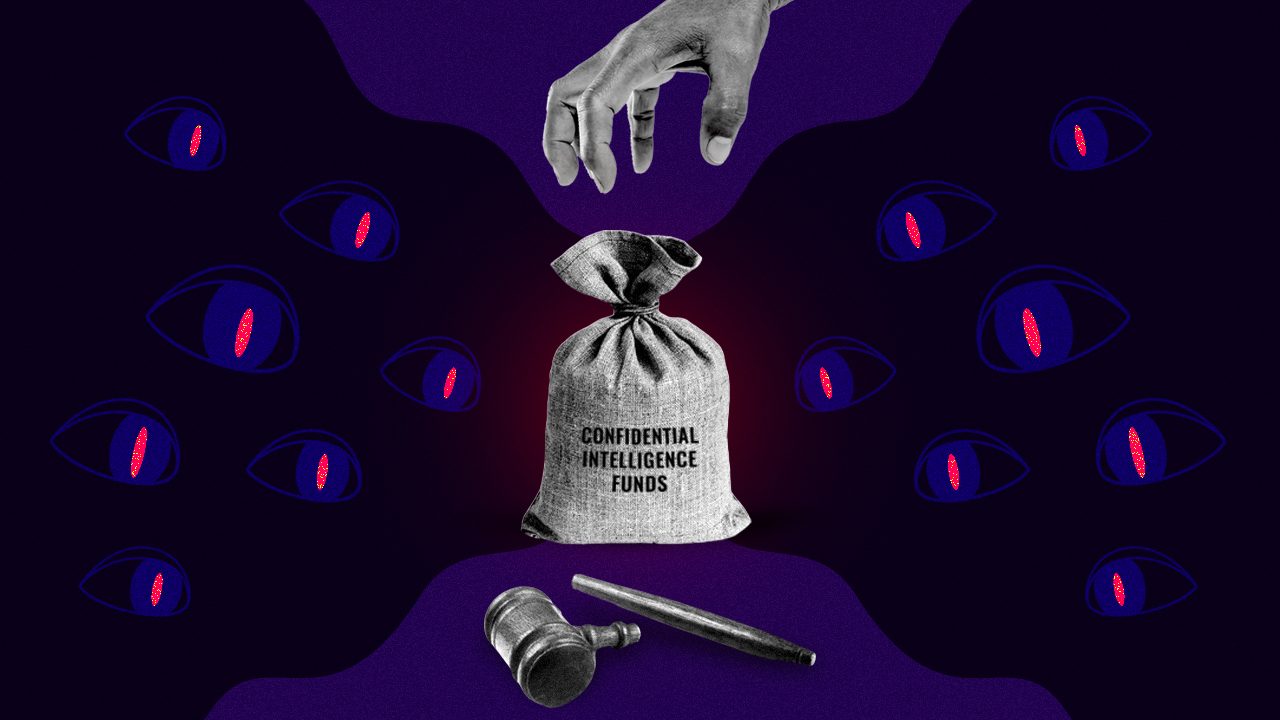
MANILA, Philippines – The issue on confidential and intelligence funds (CIF) is not yet over, as it has already reached the Supreme Court (SC).
Led by legal luminary and retired SC senior associate justice Antonio Carpio, lawyers, law students, and priests filed a petition for certiorari and mandamus, seeking to declare the rules governing the CIF unconstitutional.
The petitioners are asking the SC to declare null and void Joint Circular No. 2015-01 and prevent the respondents, which include Vice President Sara Duterte, from enforcing the circular. The grant and liquidation of confidential and intelligence funds are covered by Joint Circular No. 2015-01 dated January 8, 2015.
Carpio and his companions argued that the secrecy on how the CIF is being spent violates two constitutional principles. The petitioners said this violates section 28, article II of the 1987 Constitution, which states that “subject to reasonable conditions prescribed by law, the State adopts and implements a policy of full disclosure of all its transactions involving public interest,” and the people’s right to information, under section 7, article III of the 1987 Constitution.
The petition filed by the retired SC magistrate was the second petition challenging the CIF. On November 7, a group of legal and economic experts filed a petition for certiorari to declare unconstitutional Duterte’s confidential funds. They also asked the Court to order the return of the P125-million fund.
Beyond these arguments, there are deeper explanations on how the CIF should be governed.
Absence of law
Joint Circular No. 2015-01 was signed by the Department of Budget and Management and the Commission on Audit (COA) in 2015, during the time of the late president Benigno Aquino III. The circular clearly differentiates the use of confidential from intelligence funds.
Confidential funds can be used to purchase information needed for the implementation of programs relevant to national security and peace and order. These funds can also be used for rentals of transport in relation to confidential activities, maintenance of safehouses, and rewards to informants who are not government employees.
Meanwhile, the use of intelligence funds is limited to the following only:
- Counter-intelligence activities that have impact on national security
- “Special projects and operations, as approved by the head agency, involving covert or semi-covert psychological, internal security operation and peace and order activities as well as programs and campaigns against lawlessness and lawless elements involving intel activities”
If the SC sides with Carpio and his companions on their petition, this circular will be declared null. An important question follows: without these guidelines, what will happen to confidential and intelligence funds?
Carpio explained that if the rules used to deny the disclosure of CIF were struck down by the court, then institutions will be compelled to disclose details on CIF spending. “The disbursement of the (CIF) money will be like any disbursement of public funds, it will be open to public scrutiny.”
The retired SC senior associate justice noted that in fact, there is no law that provides reasonable limitations on how the public can scrutinize the CIF. Carpio explained that the 1987 Constitution requires full disclosure whenever public funds are spent, save for instances when a law that sets boundaries exists.
“Eh walang batas providing for reasonable limitations. So, tayo ngayon (ay) nasa full disclosure tayo. So we have the right to demand full disclosure. That’s basically what we’re asking, full disclosure, kasi wala namang batas providing for reasonable limitations,” Carpio said in a press briefing on November 15.
(However, there is no law providing for reasonable limitations. So now, we should be in full disclosure. So we have the right to demand full disclosure. That’s basically what we’re asking, full disclosure, because there is no law providing for reasonable limitations.)
The constitutional principle Carpio cited is enshrined in section 28, article II of the 1987 Constitution. This provision states that “subject to reasonable conditions prescribed by law, the State adopts and implements a policy of full public disclosure of all its transactions involving public interest.” (READ: [ANALYSIS] Fundamental constitutional requirements for confidential funds)
Ensuring transparency
The joint circular being assailed by the petitioners is not useless – in fact, it has a specific purpose. Aside from defining how the CIF should be spent, the circular also sets guidelines on how these funds should be audited, according to former COA commissioner Heidi Mendoza.
Mendoza also dispelled claims that CIF cannot be audited: “Naka-specify din po sa joint circular, naka-seal po sa envelop (ang materials for auditing). And then ‘yon pong representative ng COA sa sinasabi nating office, ‘yong intelligence and confidential audit unit, bubuksan po niya ‘yong envelope to find out if the documents are complete. So, ito pong prosesong ‘to ang nagpapatunay ng information na kinakailangan ng taumbayan.)

Unlike regular funds that go through the COA’s rigorous auditing process, the CIF are still being checked, but not subjected to the same strict rules. This has been confirmed by several COA chairpersons in separate interviews. Former COA chairperson Grace Pulido Tan explained in a previous interview that in the interest of national security, the specific uses of these funds are not disclosed to the public.
Mendoza, meanwhile, said that it is “high time” to revisit the COA’s auditing guidelines, but still stay within the commission’s constitutional mandate. “It is high time also that the information be disclosed to the public,” she added. During the deliberations for the 2024 national budget, current COA chairperson Gamaliel Cordoba also said they are open to revisit the guidelines on the CIF.
To achieve full transparency, and at the same time, to comply with the constitutional requirements set by the 1987 Constitution, legislative intervention is needed.
This is where the two chambers of Congress – Senate and the House of Representatives – enter. The legislative department, which is mandated to craft and pass laws, should craft a law that will satisfy the constitutional requirements of the confidential and intelligence funds, Carpio said.
“What Congress should do is to pass a law to comply with the Constitution to put reasonable limitations. What those reasonable limitations are, will be discussed by Congress,” he added.
What should the said law contain to limit disclosure but still ensure transparency? Mendoza explained that the audit agency has the constitutional mandate to define audit rules and regulations, so if ever Congress passes a law defining the limitations, “the COA can issue the appropriate guideline to cover such.”
Carpio added that the reasonable limitations should be justified, whether these cover confidential or intelligence funds. He added that since taxpayers’ money is being used for these expenses, officials who spend the CIF are always accountable to the people at all times.
Role of Duterte’s FOI
Former president Rodrigo Duterte’s second order as the chief executive supposedly mandated full public disclosure.
In July 2016, he signed Executive Order No. 2, series of 2016, covering Freedom of Information that mandated “all government offices under the executive branch including, but not limited to, the national government and all its offices, departments, bureaus, offices and instrumentalities including government-owned and -controlled corporations, state universities and colleges.”
Duterte’s EO was a landmark order because it finally allowed the public – in theory – to request documents and records from the executive branch. It took effect on November 25, 2016, alongside the launch of its online portal. The Department of Justice and the Office of the Solicitor General were tasked to set limitations on the documents that could be requested.
Fast forward to the present year, under Duterte’s successor, the same order that aimed for transparency is being used to prevent disclosure on how the CIF was spent. The petitioners led by Carpio are assailing Duterte’s FOI, aside from the joint circular.
The petitioners said they sent a demand letter to the respondents on October 17, 2023, requesting to provide copies within seven days “receipt, of the official records, documents, and papers related to disbursements and liquidations of the confidential funds since 2022.”
But a reply from the Office of the Vice President led by Sara Duterte said that the documents the petitioners had requested “are covered by the exceptions to the right of access to information” citing Executive Order No. 2 (S. 2016) and Joint Circular No. 2015-1.”
Privileged information related to national security, defense, and international relations, and information concerning law enforcement and protection of public safety, among others, are exempted from the information that can be requested.
The problem is, neither EO No. 2 nor the joint circular is a law – which is the requirement set by the Constitution to avail of disclosure limitations, Carpio and his fellow petitioners argued. This is why they are challenging both the joint circular and Duterte’s FOI.
“If you look at the reply of the OVP, they are saying that they cannot disclose how they spend the money because of the EO. What we are saying is, the Constitution requires a law, not an EO,” Carpio explained. — with research from Precious Altura/Rappler.com
Precious Altura, a fourth year journalism student from the Polytechnic University of the Philippines, is a Rappler intern. Learn more about Rappler’s internship program here.
1 comment
How does this make you feel?

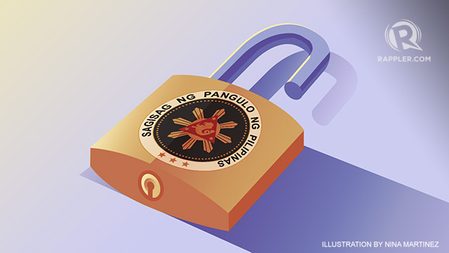

![[WATCH] Carpio on People’s Initiative: ‘Nothing to do with economic provisions’](https://www.rappler.com/tachyon/2024/02/RetiredJusticeCarpio_Cebu_February202024-1-scaled.jpg?resize=257%2C257&crop=767px%2C0px%2C1372px%2C1372px)
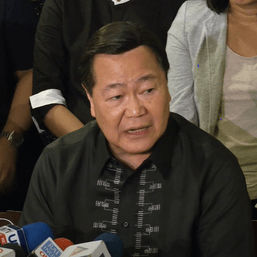



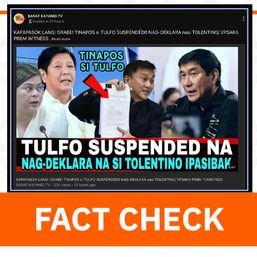
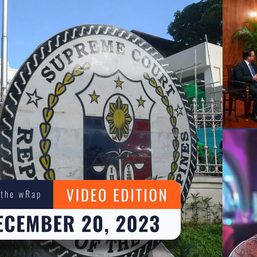

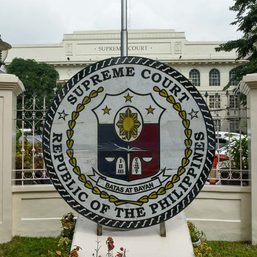
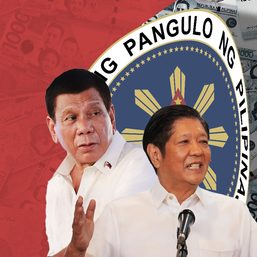
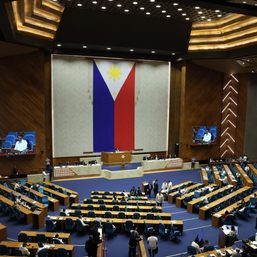
![[OPINION] The Duterte legacy: Confidential funds](https://www.rappler.com/tachyon/2023/09/duterte-legacy-confidential-funds-september-21-2023.jpg?resize=257%2C257&crop_strategy=attention)
![[OPINION] Rodrigo Duterte and his ‘unconditional love’ for China](https://www.rappler.com/tachyon/2024/04/rodrigo-duterte-xi-jinping-august-2019.jpeg?resize=257%2C257&crop=91px%2C0px%2C900px%2C900px)



![[The Slingshot] Lito Patay’s 4 hours and 38 minutes of infamy](https://www.rappler.com/tachyon/2024/07/Lito-Patay-4-hours-infamy-July-19-2024.jpg?resize=257%2C257&crop=233px%2C0px%2C720px%2C720px)




![[Rappler’s Best] Knowing when to leave](https://www.rappler.com/tachyon/2024/07/biden-sara-gfx.jpg?resize=257%2C257&crop_strategy=attention)




Now, let us wait and see how the Duterte-appointed members of the Supreme Court, including the Marcos-appointed ones, if any, will decide. At stake are, on one hand, the money of the taxpayers and the People’s right to information; and, on the other hand – the Democratic Principles of Transparency and Accountability. Good luck petitioners especially retired SC senior associate justice Antonio Carpio.